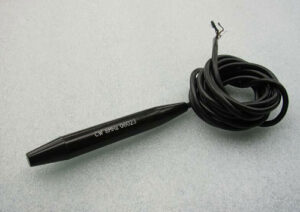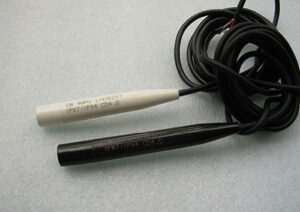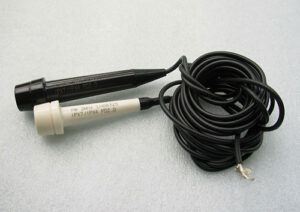Application
This sensor works together with ultrasonic Doppler blood flow analyzer.
Total has two categories: Pulse Doppler sensor and Continuous Doppler sensor, according to different using requirement, there are three kinds of frequency.
How TCD Doppler Sensor works
Transcranial Doppler (TCD) is type of Doppler ultrasonography that measure the velocity of blood flow through the brain’s blood vessels by measuring the echoes of ultrasound waves moving transcranially (through the cranium). These modes of medical imaging conduct a spectral analysis of the acoustic signals they receive and can therefore be classified as methods of active acoustocerebrography. They are used as tests to help diagnose emboli, stenosis, vasospasm from a subarachnoid hemorrhage (bleeding from a ruptured aneurysm), and other problems.
The ultrasound probe emits a high-frequency sound wave (usually a multiple of 2 MHz) that bounces off various substances in the body. These echoes are detected by a sensor in the probe.
Although TCD is not so accurate due to relative velocity of blood flow, but it is still useful for diagnosis of arterial occlusions in patients with acute ischemice stroke, especially for middle cerebral artery
TCD Doppler Sensor blood flow meter Technical parameters:
| Model | PW-2 | CW-4 | CW-8 |
|---|---|---|---|
| Working frequency | 2MHz ± 10% | 4MHz ± 10% | 8MHz ± 10% |
| Working method | Pulse wave | Continuous wave | Continuous wave |
| Static capacitance | 2900PF±20% | Send:1500PF±20% Receive:1500PF±20% | Send:500PF±20% Receive:500PF±20% |
| Relative sensitivity | >-9dB | >-20dB | >-15dB |
| Relative bandwidth | ≥30% | ≥15% | ≥20% |
| Receiving-sending mixed | — | <-50dB | <-50dB |
| Main use | For brain blood flow analysis | For the carotid artery blood flow analysis | For superficial vascular blood flow analysis |




